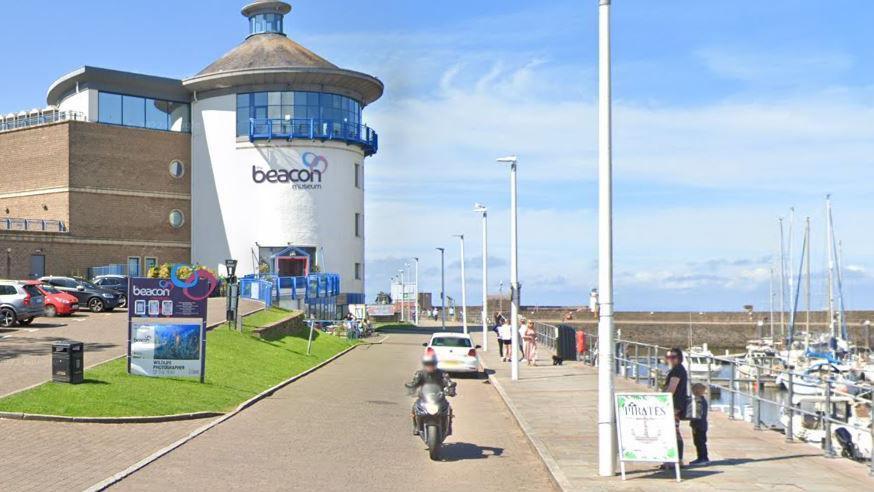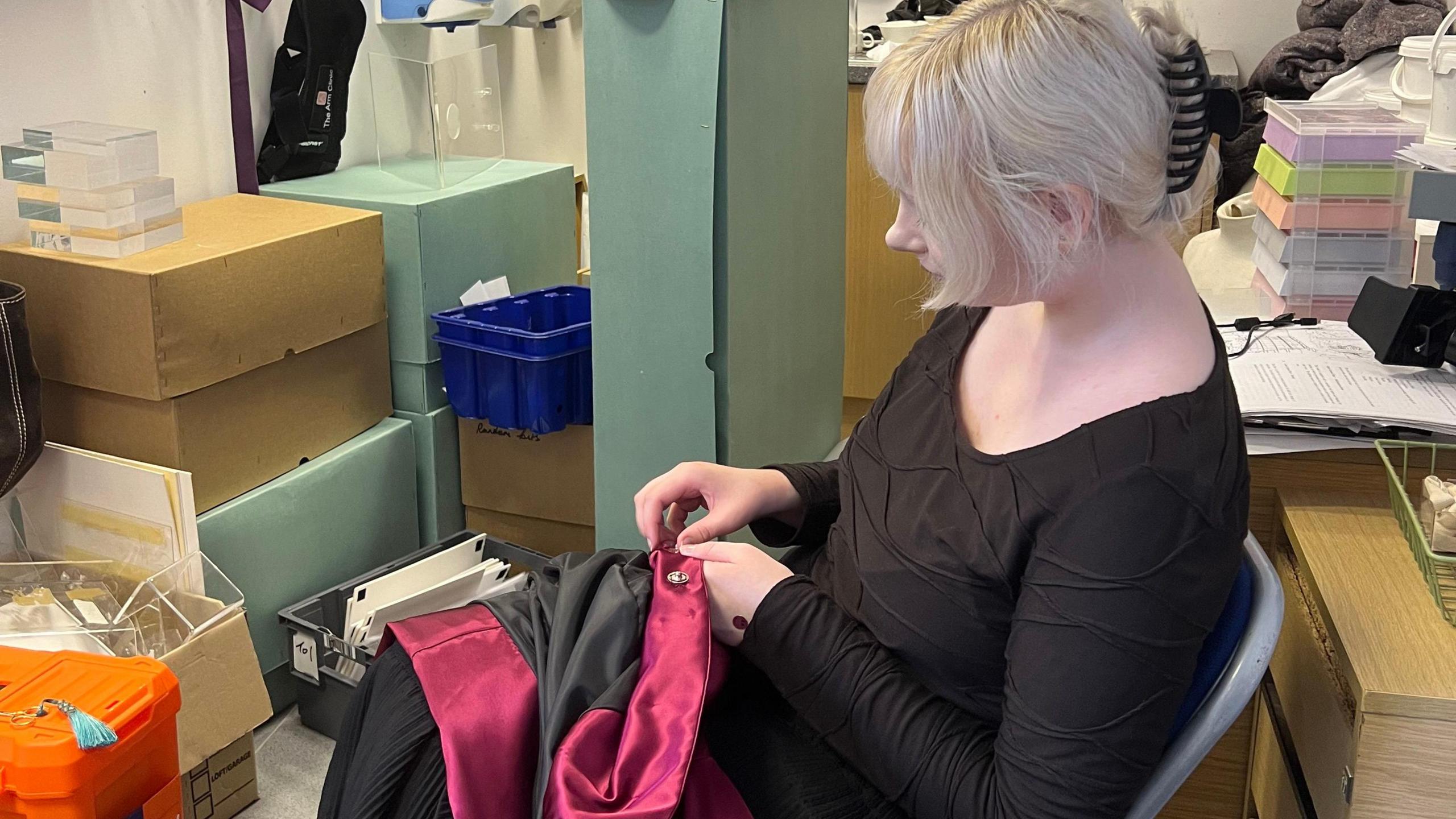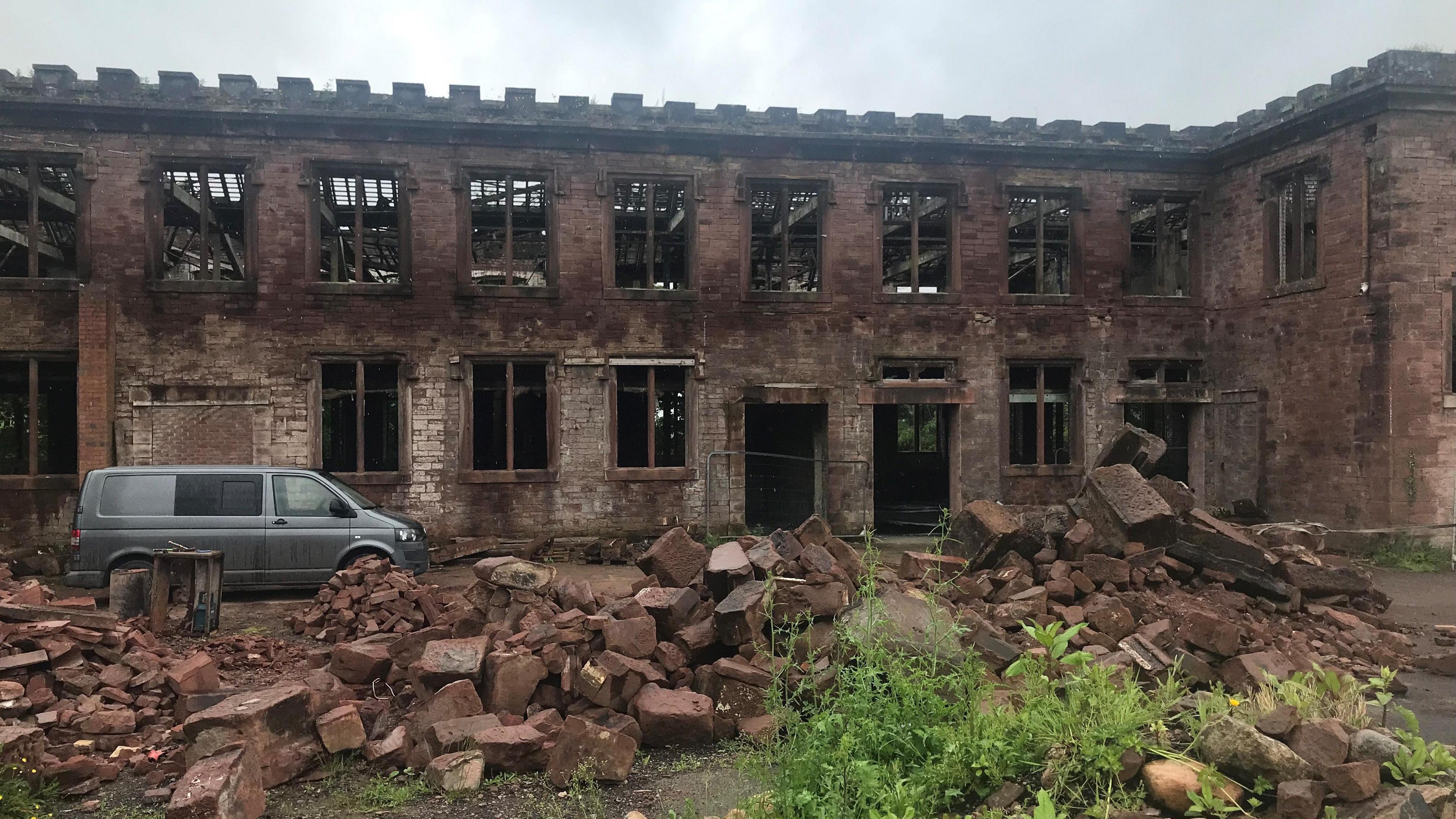Factory workers help tell town's fashion history

The exhibition tells the story of how west Cumbria went from a mining community to a fashion hub
- Published
Former factory workers have helped tell the story of how a mining town turned its fortunes around by entering the fashion industry.
When the economic depression hit in the 1920s and 1930s, mining towns such as Whitehaven in Cumbria were hit hard with unemployment soaring to 50%.
To boost economic activities, the then Cumberland Development Council worked to bring in textile factories like Sekers, who supplied fabrics for Dior, and Kangol, which makes hats loved by celebrities.
Thanks to objects and fabrics loaned by former workers and their relatives, The Beacon Museum in Whitehaven has put together an exhibition on the area's textile history.
Heather Holmes, the museum's visitor experience manager, said west Cumbria was proud of its links with fashion, with workers seeing their creations in cinemas, the West End and "adorning the most glamorous models and celebrities of the day".

Samuel L Jackson is a known fan of Kangol's hats
Companies such as West Cumberland Silk Mills also played a part in World War Two, with the factory switching its production to parachutes.
Some London-based companies also moved production to west Cumbria, which was considered safer than London during the conflict.

Former workers have loaned items for the exhibition
The exhibition looks behind the scenes as companies like Millers Footwear, Edgards & Sons, Kangol, and the West Cumberland Silk Mills (later Seker’s Fabrics) either originated or relocated to the area between the 1930s and the 2000s.
Mrs Holmes said: "One of the objects on display will be a two-piece skirt and coat created by one of the volunteers, inspired by mid-century haute couture fashion houses like Dior and Worth who used Sekers fabrics in their collections."
Follow BBC Cumbria on X, external, Facebook, external, Nextdoor and Instagram, external. Send your story ideas to northeastandcumbria@bbc.co.uk.
Related topics
- Published29 May 2024
